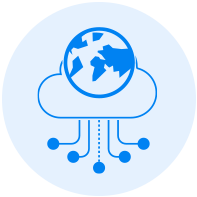
Expert Q&A with eCredable: Changing the Credit Scoring Game with Alternative Data
Urjanet Inc | June 16, 2017 | Credit & Lending
For years, banks have relied on the FICO credit score to determine whether a customer is eligible for everything from a credit card to a home loan. And while we don’t know the secret recipe that makes up the FICO credit scoring model, we do have a high level understanding that this model relies on payment history, amount owed, length of history, type of credit used and new credit.
But there’s a growing problem with relying solely on these factors to determine a potential customer’s credit risk. In a recent FICO Decisions research white paper, Can Alternative Data Expand Credit Access, it was found that FICO has incomplete or no data on over 50 million Americans. This means that 50 million Americans cannot qualify for loans under the previously listed determining factors. That’s where alternative data steps in.
We sat down with eCredable CEO, Steve Ely, to understand what alternative data is, and how it can help millions of underbanked or unbanked Americans qualify for credit opportunities. Read on to learn more about alternative data and how it could change the credit scoring game.
Q: Let’s start simple, how does someone build credit?
A: Credit files get built when a consumer works with a bank, like SunTrust, to access a loan. SunTrust then reports your monthly payments to the major credit bureaus like Equifax, Experian, and TransUnion so they can update your credit file. So every time you get an update in your credit file, it directly affects what is called a “trade line”. A “trade line” is the payment history on a credit card, auto loan, home loan, etc.
There’s a bunch of math that pulls in all these trade lines to create a credit score. Every time we have one of these trade lines and make one of these payments it goes into our credit file and effects our credit score.
Q: What about those who are defined as underbanked or unbanked? Who are they?
A: Let’s start by assessing the three types of consumers there are. In the credit world, there’s no file (or no hit), thin files, and thick files. No file or no hits, you simply don’t exist to credit bureaus, and there’s nothing they can do to help you–this is the person we’re trying to help at eCredable. Thin file is someone who has a credit file. They likely have one trade line, but you can’t normally generate a FICO score from one tradeline. These two types of consumers are mostly made up of young people or immigrants tothe U.S.
And so when these people walk into a credit union or a bank and the bank wants them to fill out an application, they’ll be put into the computer system and will come back with a “no hit” or a “thin file”. And these people won’t be getting a loan from banks.
The third is someone who has a thick file. These people have multiple trade lines open, probably a mortgage, car loan, a few credit cards, etc. These people will have no problem creating a FICO credit score because they have a rich payment history.
Q: So, what happens if I need to get a car loan, mortgage or even a credit card and I’m someone who has a thin or nonexistent file? What can I do to prove I’m not a credit risk?
A: A great way to build your credit score is to join a company like eCredable who uses alternative data to assess payment history. We work with Urjanet, who provides us access to information on utility bills like gas, electric, water, waste, telecom, cable providers and more. This “alternative data” is the key to giving these unbanked or underbanked consumers a chance at building a credit score.
Think about all of the bills you pay in one month. Rent, mobile, cable, internet, water, electric, and maybe gas? That is a treasure trove of data for us to prove that you are not a credit risk and you do, in fact, have a solid history of on-time payments. In the world of credit risk, you can never have enough information to prove that someone is or isn’t a risk. The more data there is, the easier it is to discover things.
Q: But is this really reliable data?
A: Absolutely. This is the beauty of the work that Equifax, FICO, TransUnion and Experian have already performed. They’ve already proven this data is very valuable, especially when no other data is available.
FICO created a unique score with Equifax and LexisNexis to allow credit card issuers to approve more thin file consumers based on information they might have on how they pay telecom bills. This doesn’t work for people with no credit files.
There are dozens of FICO scores used by lenders. One of the most popular scoring models is FICO 8. FICO 8 actually uses utility and telecom trade lines if they are present in the credit bureau file. But they rarely are because utility and telecom companies loathe reporting to credit bureaus. It’s just more expense for them and another set of regulations to deal with. Utility companies have plenty of regulations to worry about already!
But a point I want to make is that if eCredable could help consumers include their utility and telecom payment in one or more of the credit files at one of the major credit bureaus, it would affect their FICO 8 (or newer) credit score. That would allow those consumers to build a FICO score many lenders are already using.
Q: What other factors does eCredable use in their scoring model that FICO won’t recognize to determine credit risk?
A: Our scoring model uses almost any monthly payment of a bill that can be verified. We prefer to use the bills we can access with Urjanet since this the most efficient and secure method of getting the data, but not all biller sites are accessible (like rent for example). So beyond utilities and telecom bills, we can manually verify and use rent, insurance, child care and almost any other recurring monthly payment. Just like any credit scoring model, we rank order the value of each payment type. Rent is the most valuable, followed by utilities and telecom payments, followed by insurance and then everything else. We look at how much you pay, how long you’ve been paying, and if you pay on time to calculate your AMP Credit Score. AMP stands for All My Payments – it’s our brand.
Q: How do you get access to this data? Is this secure?
A: Absolutely. We ask consumers to opt-in to share their credentials to their various utility and telecom bills. Some consumers might hesitate to provide this information, but we’re confident most consumers will see the value we offer in exchange for sharing their log-in credentials. And we’re not asking for access to your bank account. That’s a really big ask and many consumers just won’t share bank credentials which is understandable.
But accessing someone’s cell phone bill or power bill isn’t going to put them at risk. We are a credit bureau and follow very strict regulations that dictate how we manage and safeguard consumer information. Urjanet has developed a very secure access network which we have a lot of confidence in. And think about the typical consumer we’re dealing with – usually young people who are accustomed to sharing extraordinary amounts of personal information on social media. We’re not asking for anything like that.
As a growing sector of the American population continues to shy away from traditional banking methods, the need for an alternative source of data to qualify these consumers for tradelines also grows. With the right data, companies like eCredable are able to break through the crowd of traditional institutions that rely on antiquated methods of determining credit risk.
To learn more about how Urjanet’s Utility Data Platform can help creditors lend with confidence, download our Solutions Sheet: Utility Data for Credit Scoring & Lending.
You might also be interested in:
- Breaking Through to Millennials with Better Data
- How to Access Utility Interval Data
- Solutions Sheet: Utility Data for Credit Scoring & Lending
If you like what you’re reading, why not subscribe?
About Urjanet Inc
Urjanet, the global leader in utility data aggregation, simplifies how organizations access and use utility data, enabling them to focus on their business. Our technology collects, processes, and delivers data from over 6,500 electric, natural gas, water, waste, telecom, and cable utilities worldwide.
